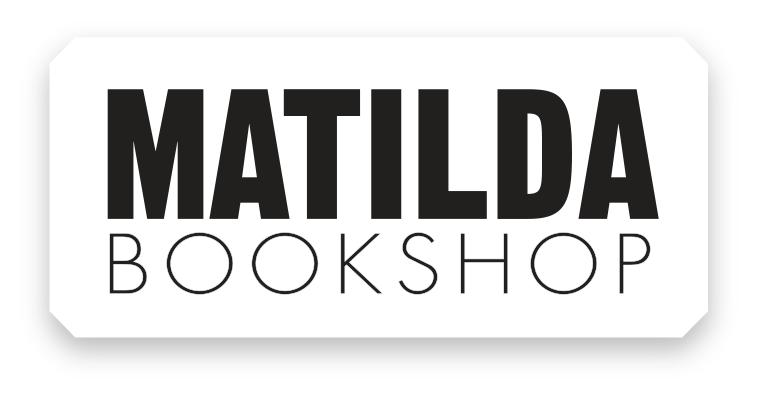
GWENDOLINE RILEY was born in London in 1979 and has been hailed as one of the most significant young British writers. She is is the author of First Love, which was shortlisted for the Women’s Prize for Literature, the Dylan Thomas Prize, the Gordon Burn Prize, and won the Geoffrey Faber Memorial Prize; Cold Water, Sick Notes, Joshua Spassky and Opposed Positions. She has also been awarded a Betty Trask Award and a Somerset Maugham Award, and has been shortlisted for the John Llewellyn Rhys Prize. In 2018, the Times Literary Supplement named her as one of the twenty best British and Irish novelists working today.
1. Why do you tell stories?
The answer is, I don’t. Forgive me, but that is the last thing I’m trying to do! I enjoy writing prose. Seeing what I can conjure up. I love the English language and I want to express something, to create something, to get at something. I’m interested in psychology, in atmosphere, in scenes, moments, and long perspectives, too. I’m very interested in how people express themselves when they’re hiding something - or rather when there is something they don’t want other people to know.
2. Describe your novel in one sentence.
No, I’d rather not. (That’s not the sentence.) To slightly misquote Jesse Wallace in Before Sunset, to do that would take the piss out of the whole thing.
3. When and where do you write?
Most days if I can. Anywhere I can get a bit of peace and quiet. The London Library used to be a good place to write and I miss it.
4. What are three things that sustain you as an author, or while you’re writing?
A vision of a world where love reigns supreme.
My wonderful husband.
And the thought that people thousands of miles away - perhaps in Australia! – might read my work and see something of their own lives in it.
5. Name three books that you couldn’t live without.
Couldn’t live without might be putting it a bit strongly…
I like my two volume Shorter OED.
The Complete Works of Shakespeare. Current favourite – Richard II.
And Ward No.6 and Other Stories, Anton Chekhov – translated by Constance Garnett.
6. The characters in My Phantoms exist, as is often the case in your work, in an atmosphere of roiling emotional disturbance, does writing about these fraught interactions take a personal toll on you?
Not writing about them might do that. As it is I’m now a mild, straightforward person, a good friend, and a warm and cheerful companion. I don’t not make a meal of things when I’m writing, but I do enjoy it. It is by definition commensurate to one’s capacities and like the characters in my books I have to try to get at certain things and make sense of them. Unlike my characters I can make some meaning out of, or get some good lines out of, the fact that they are left helplessly unresolved.
7. Did shifting the focus in this book, from relationships between couples to within families, make this an easier or harder book to write?
I don’t know if easier or harder came into it. In a way it was the same old problem.
8. Your acute observation of the minutiae of human existence is mirrored in the terse brevity of your words, is this marriage of form and content something you’re consciously aware of?
As opposed to unconsciously aware of? Hm? There is another logical flaw in this question if you don’t mind my saying. I put things the way I put them and that is what makes them what they are. I mean, there’s nothing to mirror. Form is content.
9. The dialogue in all of your writing is particularly brilliant—there is not a beat out of place. Can you comment on the importance of dialogue in (your) fiction?
Thank you! I think it’s something I’m getting better at and I’m glad it works for you. It’s a good way of getting started I find. There can be so much happening in the simplest exchange.
10. The characters of the father and mother in My Phantoms are impeccably drawn: recognisable, yet absolutely unique. How did these two misfits come to you, or come to be imagined? Have you ever wanted to write warm, lovable people into your stories?
Thank you. Yes, all human beings are the same, and all human beings are different as a wise man once said. I think it’s very sad that my characters are unlovable. They are, but it’s sad. Unlick’d bear-whelps. There’s a bit of Dickens’s Mr Podsnap in the father. And the mother… I suppose I was thinking about the moments in one’s life where one feels out of place, frightened, defensive, sad – but I made that into someone’s whole life. And built a terrible contrast with her daughter whose life has proceeded pretty smoothly. I hope it’s not quite clear whether that was a matter of bad luck or something else. They go to see a Chekhov play in my book. I’ve always loved that desperate line in Uncle Vanya where he cries out, ‘If I’d had a normal life I might have been a Schopenhauer or a Dostoevsky!’ It’s desperate because it might be true. You don’t know. Is it possible to imagine the mother’s life could have been different? I think that’s the question that taunts her daughter - and perhaps a reader might wonder, too.


